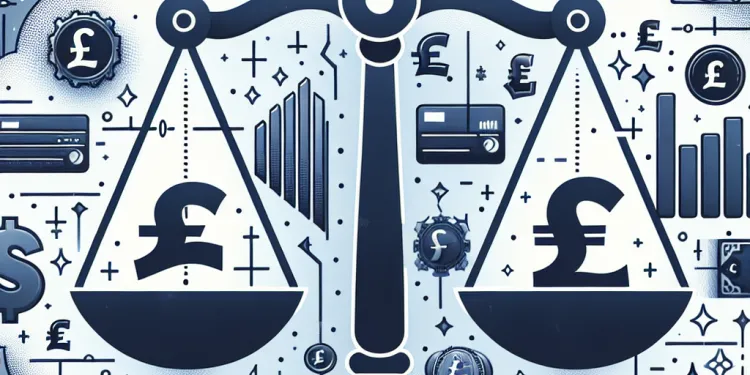
Find Help
More Items From Ergsy search
-
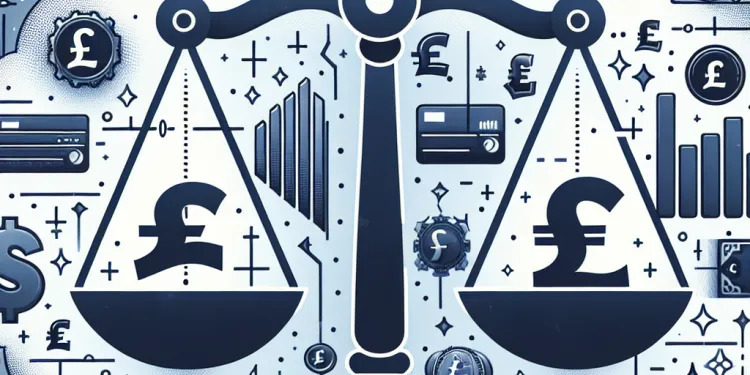
What are the consequences for banks not complying with transparency standards?
Relevance: 100%
-
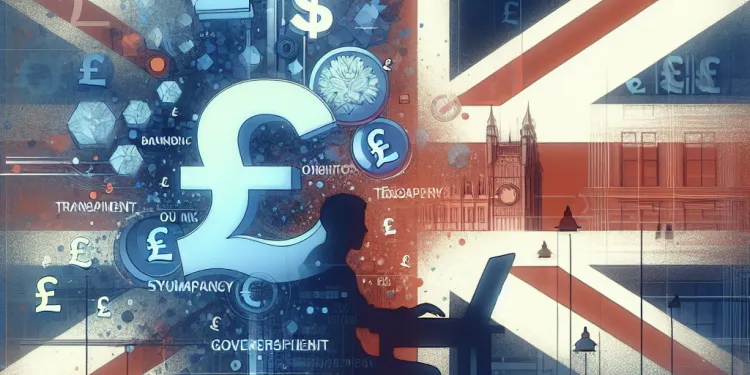
How can government policies influence transparency in banking fees?
Relevance: 58%
-

How can banks improve transparency regarding their fees?
Relevance: 56%
-

Calls for Greater Transparency in Banking Fees as Complaints Rise
Relevance: 53%
-
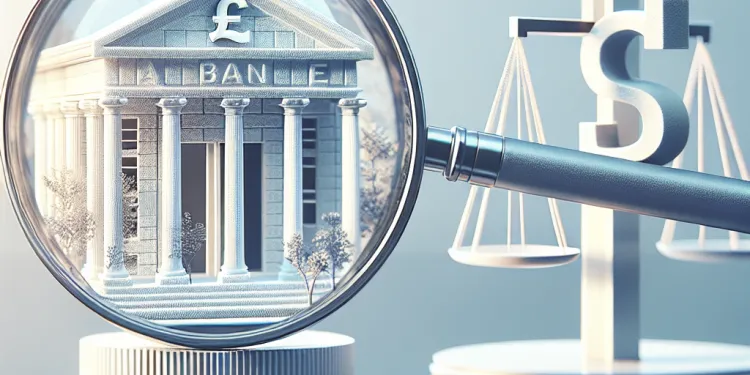
Why is there a call for greater transparency in banking fees?
Relevance: 53%
-

What initiatives are in place to address banking fee transparency?
Relevance: 52%
-

How does technology help in enhancing transparency in banking fees?
Relevance: 47%
-
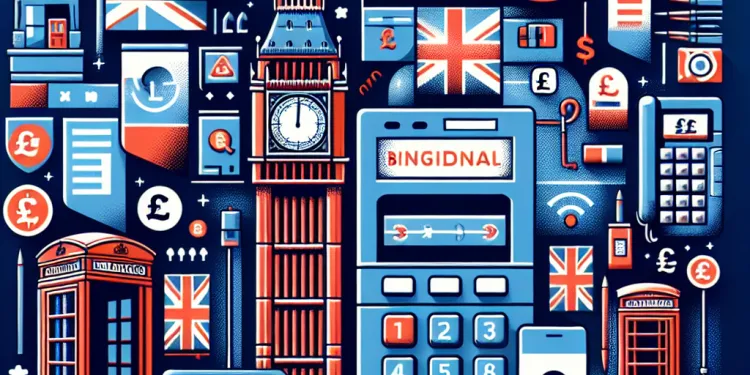
What actions are consumer rights groups taking regarding banking fee transparency?
Relevance: 43%
-

How do governments ensure compliance with wealth tax laws?
Relevance: 40%
-

Legal Experts Warn of Consequences in Upcoming AI Regulation Bill
Relevance: 39%
-

What role do regulatory bodies play in fee transparency?
Relevance: 39%
-

Who regulates the performance and compliance of UK water companies?
Relevance: 33%
-

How transparent are water companies regarding infrastructure improvements?
Relevance: 33%
-

How important is financial transparency in preventing disputes?
Relevance: 32%
-
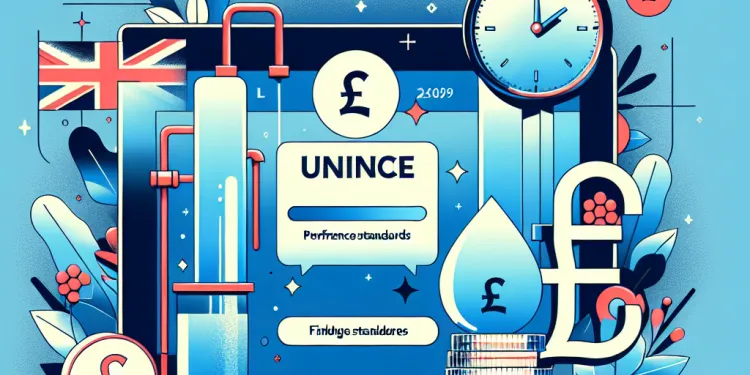
Where can customers find updates on their water company's performance standards?
Relevance: 32%
-

What are the potential consequences for a company that fails to recall a dangerous product?
Relevance: 31%
-

Is advice from my bank on pensions reliable?
Relevance: 30%
-

What feedback do customers give regarding banking fees?
Relevance: 30%
-

How do I know if a bank is insured and secure?
Relevance: 30%
-

How do banking fees impact financial inclusion?
Relevance: 29%
-
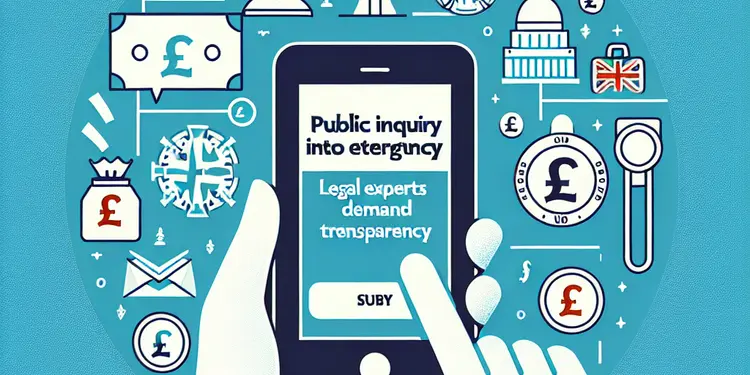
Public Inquiry into States of Emergency: Legal Experts Demand Transparency
Relevance: 28%
-

Do online banks have lower fees than traditional banks?
Relevance: 28%
-

Are school meals inspected for quality and standards?
Relevance: 28%
-

What is the standard of care in professional negligence?
Relevance: 28%
-

Are there specific banking services more prone to opaque fee structures?
Relevance: 28%
-

How often can I visit a food bank?
Relevance: 28%
-

What is the role of the Office for Product Safety and Standards in a recall?
Relevance: 28%
-

Does the HMRC Employer Bulletin provide guidance on compliance?
Relevance: 28%
-

Do all banks have the same fee structures?
Relevance: 27%
-
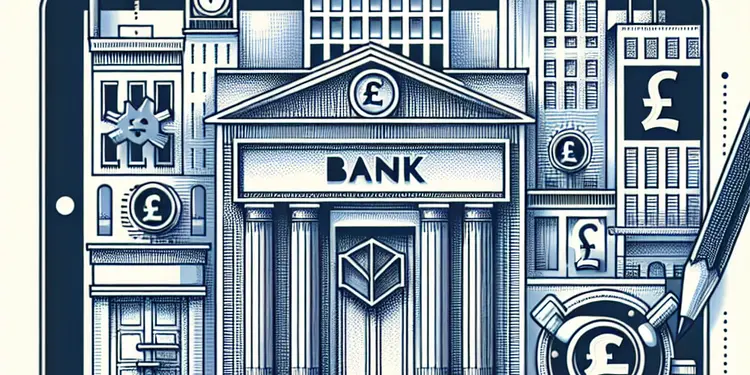
How do I know if a bank is insured and secure?
Relevance: 27%
-

Are online banks like Monzo and Revolut regulated?
Relevance: 27%
-
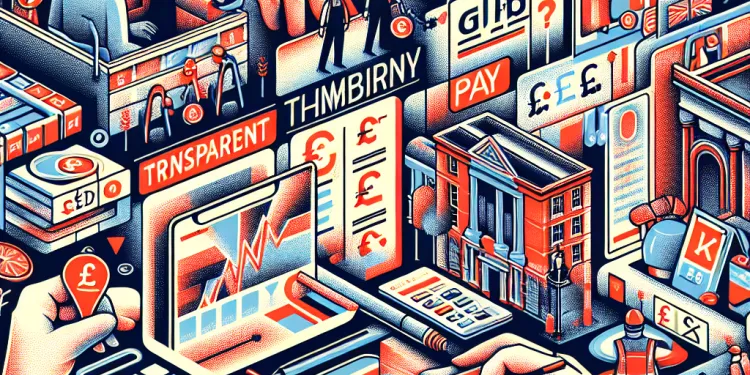
Do gig workers have the right to transparency in pay and fees?
Relevance: 27%
-

Are online banks cheaper than traditional banks?
Relevance: 27%
-

What are the consequences of dangerous driving?
Relevance: 27%
-

Are online banks cheaper than traditional banks?
Relevance: 26%
-
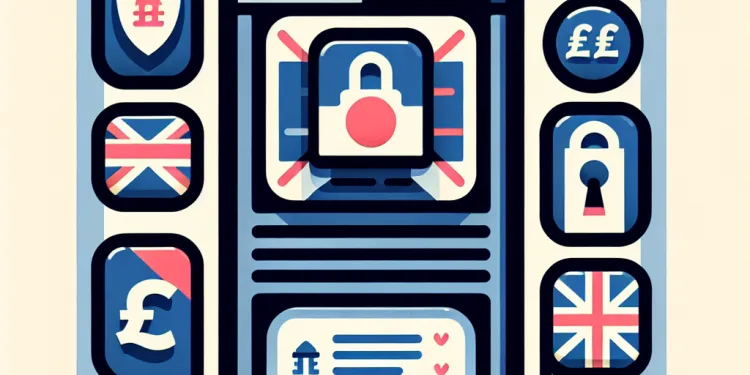
Are online banks like Monzo and Revolut safe?
Relevance: 26%
-

Are there benefits to having multiple bank accounts at different banks?
Relevance: 25%
-

What role do customer service representatives play in fee transparency?
Relevance: 25%
-

Are there benefits to having multiple bank accounts at different banks?
Relevance: 25%
-

What are the social consequences of binge drinking?
Relevance: 25%
Introduction
In the financial industry, transparency is a critical factor that fosters trust, stability, and integrity. Banks in the UK are required to adhere to transparency standards set forth by regulatory bodies such as the Financial Conduct Authority (FCA) and the Prudential Regulation Authority (PRA). These standards are crucial in maintaining the overall health of the financial system and protecting consumer interests. Failure to comply can have serious consequences.
Regulatory Penalties
Non-compliance with transparency standards can lead to significant regulatory penalties for banks. The FCA and PRA have the authority to impose fines on institutions that fail to meet their obligations. These fines can be substantial, impacting the financial stability of a bank. Besides monetary fines, regulatory bodies may impose additional sanctions, such as restrictions on certain business activities or the requirement to take corrective actions to address compliance failures.
Reputation Damage
A bank's reputation is crucial to its success and longevity. If a bank does not comply with transparency standards, it risks damaging its reputation. The public and investors may lose trust in the bank, leading to a loss of business and a decrease in share value. In today’s digital age, where information spreads rapidly, reputational damage can have immediate and long-lasting effects. Customers may choose to take their business elsewhere, and potential clients may be deterred from engaging with the institution.
Operational Consequences
Transparency is vital for the smooth operation of financial institutions. Failure to comply with transparency standards can disrupt operations. For instance, a lack of clear and honest communication with stakeholders can lead to internal confusion, regulatory scrutiny, and operational inefficiencies. Moreover, banks might face increased costs related to legal fees, compliance consulting, and the implementation of new processes to rectify non-compliance issues.
Legal Challenges
Banks that do not adhere to transparency standards may face legal challenges. Non-compliance can result in lawsuits from clients, investors, or regulators. These legal battles can be costly and time-consuming, diverting resources from essential banking functions. Additionally, litigation can expose the bank to further scrutiny and uncover other areas of non-compliance, exacerbating the initial issue.
Impact on Financial Stability
Transparency in banking helps to ensure financial stability by allowing regulators to monitor and address risks effectively. Non-compliance can lead to systemic risks, as regulators may not have the necessary information to preemptively tackle potential issues. In extreme cases, lack of transparency can contribute to financial crises, where the effects are felt throughout the economy, affecting not only individual banks but also consumers, businesses, and the broader financial system.
Conclusion
Compliance with transparency standards is not just a regulatory requirement but a fundamental aspect of responsible banking. The consequences of not adhering to these standards are severe and multifaceted, impacting financial, reputational, and operational aspects of banks. Ensuring transparency is key to maintaining trust, stability, and efficiency in the UK’s banking sector.
Introduction
In banking, being open and honest is very important. It helps people trust banks and keeps things stable and fair. In the UK, banks must follow rules about being open. These rules are made by groups like the Financial Conduct Authority (FCA) and the Prudential Regulation Authority (PRA). These rules help keep the banking system safe and protect people who use banks. If banks do not follow these rules, they can get into big trouble.
Regulatory Penalties
If banks do not follow the rules about being open, they can get into trouble with the FCA and PRA. These groups can fine banks a lot of money. This can hurt how well a bank does. Besides fines, the banks might have to follow other rules or change how they do some things until they fix their mistakes.
Reputation Damage
A bank's good name is very important. If a bank is not honest, people might stop trusting it. This can make the bank lose customers and money. Today, information spreads very fast on the internet. If a bank gets a bad name, it can happen quickly and last a long time. People might stop using the bank, and others might not want to start using its services.
Operational Consequences
Being open is important for banks to work well. If banks are not honest, it can mess up how they operate. If banks do not clearly communicate, there can be confusion inside the bank, and more attention from regulators. Banks may have to spend more money to fix problems and make sure they follow the rules.
Legal Challenges
Banks that are not open might face legal problems. They could be sued by customers, investors, or regulators. Legal battles can cost a lot of money and take up a lot of time. It also shows more problems inside the bank, making things worse.
Impact on Financial Stability
Being open in banking helps keep everything stable. It helps regulators see and fix risks early. If banks are not open, they might cause big problems, like financial crises. These problems can affect everyone, not just the banks, but also people and businesses that rely on them.
Conclusion
Following the rules about being open is very important for banks. It's not just about following the law; it's about being a good bank. If banks are not honest, it can cause many problems with money, their reputation, and how they work. Being open helps keep trust and stability in banking.
Frequently Asked Questions
What are the potential financial penalties for banks failing to comply with transparency standards?
Banks may face significant fines and penalties imposed by regulatory bodies for not adhering to transparency standards.
Can non-compliance with transparency standards affect a bank's license to operate?
Yes, in severe cases, regulatory authorities may revoke or suspend a bank's license to operate if they fail to comply with transparency standards.
How does non-compliance with transparency standards impact a bank's reputation?
Non-compliance can severely damage a bank's reputation, leading to loss of trust among customers, investors, and the public.
Are banks subject to increased scrutiny if they fail to comply with transparency standards?
Yes, regulatory bodies may subject non-compliant banks to closer monitoring and increased scrutiny.
How can non-compliance with transparency standards affect a bank's stock price?
Negative publicity and loss of investor confidence can lead to a drop in the bank's stock price.
What operational changes might a bank be forced to implement after non-compliance?
A bank may need to implement corrective action plans, enhance internal controls, or make management changes to comply with regulations.
Can bank executives be held personally liable for non-compliance with transparency standards?
Yes, in some jurisdictions, executives may face personal fines or bans from the banking industry.
How does non-compliance with transparency standards affect a bank's customer relationships?
Customers may lose trust in the bank, leading to account closures and a decrease in new customer acquisition.
Can non-compliance with transparency standards impact a bank's ability to access capital markets?
Yes, a damaged reputation from non-compliance can affect a bank's ability to raise funds in capital markets.
What legal actions can regulators take against non-compliant banks?
Regulators can impose fines, sanctions, or take legal action against banks that do not comply with transparency standards.
How might non-compliance with transparency standards influence a bank's credit rating?
Credit rating agencies may downgrade the bank’s rating due to perceived risks and financial instability.
What are potential operational risks associated with non-compliance?
Operational risks include increased regulatory costs, legal battles, and the need for additional resources to address compliance gaps.
How does failure to meet transparency standards affect investor confidence?
Investors may view the bank as a risky investment, leading to reduced capital inflows and investment losses.
Can non-compliance impact a bank's relationship with other financial institutions?
Other financial institutions may be hesitant to engage in business with banks that have a history of non-compliance due to reputational risk.
Does non-compliance with transparency standards have any effect on customer data security?
A lack of transparency might indicate weaknesses in governance that could extend to poor data security practices.
What is the impact of non-compliance on competitive positioning in the market?
Non-compliant banks may lose their competitive edge and market share to banks that adhere to regulatory standards and maintain customer trust.
How might non-compliance with transparency standards affect regulatory relations?
Non-compliance can strain relations with regulators, leading to a more adversarial and scrutinized regulatory environment.
Can non-compliance with transparency standards limit a bank's product offerings?
Regulatory constraints may limit a non-compliant bank's ability to offer certain products or enter new markets.
What is the long-term effect of non-compliance on a bank's growth prospects?
Long-term growth prospects can be negatively impacted due to lost customer trust, damaged reputation, and reduced competitive capabilities.
How might non-compliance affect a bank's internal culture and employee morale?
A culture of non-compliance may lead to decreased morale, increased turnover, and difficulty in attracting top talent.
What happens if banks do not follow the rules about being open?
Banks can get in trouble if they do not follow the rules. They might have to pay money as a punishment. Here are some ways to better understand this: - Ask someone to explain the rules to you. - Find a video that talks about bank rules. - Use pictures or simple charts to help see the ideas.Banks can get in big trouble if they don't follow the rules about being clear and honest. They might have to pay a lot of money.
Can a bank lose its license if it doesn't follow transparency rules?
Yes, if a bank breaks important rules, people in charge can take away or pause the bank's permission to work.
What happens to a bank's good name if it does not follow the rules to be clear and open?
When a bank does not follow rules about being open and honest, it can lose trust. This can hurt its good name. It's like when someone does not tell the truth, people may not believe them next time. So, it's important for a bank to always be clear and share important information.
Here are some tips and tools to help understand this better:
- Think of It Like a Game: Imagine if you played a game but did not follow the rules. Other players might not want to play with you again.
- Ask for Help: If you don't understand something, you can ask a teacher or a parent to explain.
- Use a Dictionary: Look up words you don't know. This helps you learn new words and understand better.
If a bank does not follow the rules, it can get a bad name. This means people might not trust the bank anymore. Customers, people who invest money, and the public might think the bank is not safe.
Do banks get in trouble if they don't follow the rules to be clear and honest?
Sometimes, banks have to show what they are doing with money. They must be clear and honest about their actions. If banks do not follow these rules, they can get in trouble.
If you want some help understanding this, you can:
- Ask someone to explain it to you.
- Use simple words to talk about what a bank is and what "rules" mean.
- Draw a picture of a bank and what it means to be clear and honest.
Yes, if banks do not follow the rules, the people who watch over banks will check them more closely.
What happens to a bank's stock price if it doesn't follow transparency rules?
If a bank does not follow the rules about being open and honest, its stock price might go down. People might feel they can't trust the bank. Here are some things you can do to make this easier to understand:
- Use pictures or charts to show how stock prices can change.
- Ask someone to read it with you and talk about it together.
- Use online tools that read text out loud if you find it hard to read.
Bad news about the bank can make people worried. When they get worried, they might not want to buy the bank's stocks. This can make the bank's stock price go down.
What changes does a bank need to make if it breaks the rules?
If a bank does not follow the rules, it might have to make some changes. Here are some things a bank might need to do:
- Make sure all workers know the rules.
- Update computer systems to keep them safe.
- Write down new plans to follow the rules.
- Have people check if the bank follows the rules more often.
To help understand, someone can:
- Ask for help from a friend or a teacher.
- Use a computer or phone to find more information.
- Draw pictures to show what the changes mean.
A bank might have to fix problems, check their rules better, or get new managers to follow the law.
Can bank bosses get in trouble if they don't follow the rules?
Bank bosses must follow important rules. If they don't, they might get in trouble.
Here are some things that can help:
- Use pictures to explain ideas.
- Break down information into small steps.
- Ask someone to help you if you're unsure.
Yes, in some places, bosses can get personal fines or be banned from working in banks.
How does a bank not being clear affect its relationship with customers?
When a bank is not clear and open about what it does, customers might feel unsure or worried.
This can make them trust the bank less.
People like to know what happens with their money, so being open is important.
Tools like pictures, simple charts, or videos can help people understand better.
People might stop trusting the bank. This could make them close their accounts and fewer new people might want to join the bank.
Can banks have trouble getting money if they don't follow transparency rules?
If banks do not follow the rules about being clear, it can make it hard for them to get money from markets. These rules are there to make sure banks show what they are doing.
When banks follow the rules, people trust them more and are more likely to lend them money.
If banks break the rules, people might not trust them, and it can be harder to borrow money.
To understand this better, banks can use things like:
- Simple guidelines: Lists to show what rules to follow.
- Checklists: Step-by-step lists to make sure everything is done right.
- Diagrams: Pictures to explain how things work.
Yes, if a bank does not follow rules, people might not trust it. This can make it hard for the bank to get money from people who invest.
What can happen if a bank breaks the rules?
If a bank doesn't follow the rules, the people in charge can take action. Here are some things they can do:
- Make the bank pay money as a fine.
- Tell the bank to fix the problems.
- Check the bank more often to make sure they do better.
- Take away the bank's permission to work.
Sometimes, getting help from a friend or using a computer can make reading easier.
People in charge can give banks penalties if they break the rules. This means they can make banks pay money or take them to court if they do not follow the rules about being open and honest.
How can not following transparency rules affect a bank's credit score?
When a bank does not follow the rules about being clear and honest (transparency), it can change how good or bad people think the bank is with money (credit score).
Some people might not trust the bank as much. The bank could get a lower score.
This score helps people decide if they want to lend money to the bank or invest in it.
It is like getting a grade in school. A good score means the bank is very likely to pay back its money.
If the score is low, it could be harder for the bank to borrow money.
It's important for banks to follow the transparency rules to keep a good score.
Using pictures, simple charts, or drawings can help explain this better.
Credit rating agencies might lower the bank's score if they think the bank is at risk or not stable.
What can happen if rules are not followed?
Not following the rules can cause problems. Here’s what might happen:
- The company might lose money.
- People could get hurt or things could break.
- The company might have to pay fines.
- The company might get into trouble with the law.
It’s important to follow the rules to keep everyone safe and happy.
Here’s how you can get help if you need it:
- Ask someone to explain the rules to you.
- Use pictures or videos to understand better.
- Write down the rules in simple words.
There are some risks that can happen when running a business. These risks might make things cost more. This can happen because of new rules to follow, fighting legal battles in court, or needing more helpers to make sure all the rules are being followed.
To understand better, you can:
- Use tools that read text out loud.
- Ask someone to explain tricky parts.
- Look up words you don't know.
How does not being clear with information affect how much investors trust you?
People who want to make money might think the bank is not safe. They might not want to put their money into the bank, so the bank gets less money and might lose money too.
Can not following rules affect a bank's friendship with other money companies?
Banks might not want to work with other banks that have broken the rules before. This is because they are worried about their image and how people see them.
Does not following transparency rules affect the safety of customer data?
If companies do not follow transparency rules, could this make customer data less safe?
Transparency rules are guidelines that tell companies how to be open and honest.
If companies do not follow these rules, it might lead to customer data being unsafe.
Customers want to know their data is safe and handled properly.
Companies can use tools like clear rules or step-by-step guides to follow transparency standards.
When things are not clear or open, it might mean there are problems with how things are run. This might also mean that they don't keep data safe very well.
Here are some tips to understand this better:
- Ask for simple explanations if something is confusing.
- Use pictures or drawings to help explain ideas.
- Use apps that read text out loud to help you.
What happens if a company does not follow the rules in the market?
If a company does not follow the rules, it might lose its good place in the market. Following rules helps companies stay strong and trusted.
To make reading easier, you can use tools like:
- Text-to-speech apps to listen while you read.
- Highlighting tools to mark important words.
Banks that do not follow the rules might lose customers to other banks that do.
What happens if rules about being open and honest are not followed?
Not following the rules can upset those who make the rules. This can make them watch you more closely and be stricter with you.
Can a bank offer fewer products if it doesn't follow transparency rules?
Bank rules can stop a bank that breaks the rules from selling some things or going into new places.
What happens to a bank if it doesn't follow the rules?
Not following rules can be bad for banks.
Here is what might happen:
- The bank might lose money.
- The bank might get in trouble with the law.
- People might not trust the bank.
- The bank might not grow or get bigger.
Tools to help understand:
- Talk to someone you trust about banking.
- Use pictures or videos to learn about banks.
Bad things can happen if people stop trusting your business. Your business might not grow, people might say bad things about it, and it might not be as good as other businesses. A tool that can help you is a checklist to keep track of good service. Also, asking happy customers for feedback can show others your business is good.
What happens to a bank's workplace and employee feelings if rules are not followed?
If people don't follow rules at work, it can make workers feel unhappy. This can cause more people to leave their jobs. It can also make it hard to hire good new workers.
Useful Links
This website offers general information and is not a substitute for professional advice.
Always seek guidance from qualified professionals.
If you have any medical concerns or need urgent help, contact a healthcare professional or emergency services immediately.
Some of this content was generated with AI assistance. We’ve done our best to keep it accurate, helpful, and human-friendly.
- Ergsy carfully checks the information in the videos we provide here.
- Videos shown by Youtube after a video has completed, have NOT been reviewed by ERGSY.
- To view, click the arrow in centre of video.
- Most of the videos you find here will have subtitles and/or closed captions available.
- You may need to turn these on, and choose your preferred language.
- Go to the video you'd like to watch.
- If closed captions (CC) are available, settings will be visible on the bottom right of the video player.
- To turn on Captions, click settings .
- To turn off Captions, click settings again.
More Items From Ergsy search
-

What are the consequences for banks not complying with transparency standards?
Relevance: 100%
-

How can government policies influence transparency in banking fees?
Relevance: 58%
-

How can banks improve transparency regarding their fees?
Relevance: 56%
-

Calls for Greater Transparency in Banking Fees as Complaints Rise
Relevance: 53%
-

Why is there a call for greater transparency in banking fees?
Relevance: 53%
-

What initiatives are in place to address banking fee transparency?
Relevance: 52%
-

How does technology help in enhancing transparency in banking fees?
Relevance: 47%
-

What actions are consumer rights groups taking regarding banking fee transparency?
Relevance: 43%
-

How do governments ensure compliance with wealth tax laws?
Relevance: 40%
-

Legal Experts Warn of Consequences in Upcoming AI Regulation Bill
Relevance: 39%
-

What role do regulatory bodies play in fee transparency?
Relevance: 39%
-

Who regulates the performance and compliance of UK water companies?
Relevance: 33%
-

How transparent are water companies regarding infrastructure improvements?
Relevance: 33%
-

How important is financial transparency in preventing disputes?
Relevance: 32%
-

Where can customers find updates on their water company's performance standards?
Relevance: 32%
-

What are the potential consequences for a company that fails to recall a dangerous product?
Relevance: 31%
-

Is advice from my bank on pensions reliable?
Relevance: 30%
-

What feedback do customers give regarding banking fees?
Relevance: 30%
-

How do I know if a bank is insured and secure?
Relevance: 30%
-

How do banking fees impact financial inclusion?
Relevance: 29%
-

Public Inquiry into States of Emergency: Legal Experts Demand Transparency
Relevance: 28%
-

Do online banks have lower fees than traditional banks?
Relevance: 28%
-

Are school meals inspected for quality and standards?
Relevance: 28%
-

What is the standard of care in professional negligence?
Relevance: 28%
-

Are there specific banking services more prone to opaque fee structures?
Relevance: 28%
-

How often can I visit a food bank?
Relevance: 28%
-

What is the role of the Office for Product Safety and Standards in a recall?
Relevance: 28%
-

Does the HMRC Employer Bulletin provide guidance on compliance?
Relevance: 28%
-

Do all banks have the same fee structures?
Relevance: 27%
-

How do I know if a bank is insured and secure?
Relevance: 27%
-

Are online banks like Monzo and Revolut regulated?
Relevance: 27%
-

Do gig workers have the right to transparency in pay and fees?
Relevance: 27%
-

Are online banks cheaper than traditional banks?
Relevance: 27%
-

What are the consequences of dangerous driving?
Relevance: 27%
-

Are online banks cheaper than traditional banks?
Relevance: 26%
-

Are online banks like Monzo and Revolut safe?
Relevance: 26%
-

Are there benefits to having multiple bank accounts at different banks?
Relevance: 25%
-

What role do customer service representatives play in fee transparency?
Relevance: 25%
-

Are there benefits to having multiple bank accounts at different banks?
Relevance: 25%
-

What are the social consequences of binge drinking?
Relevance: 25%


